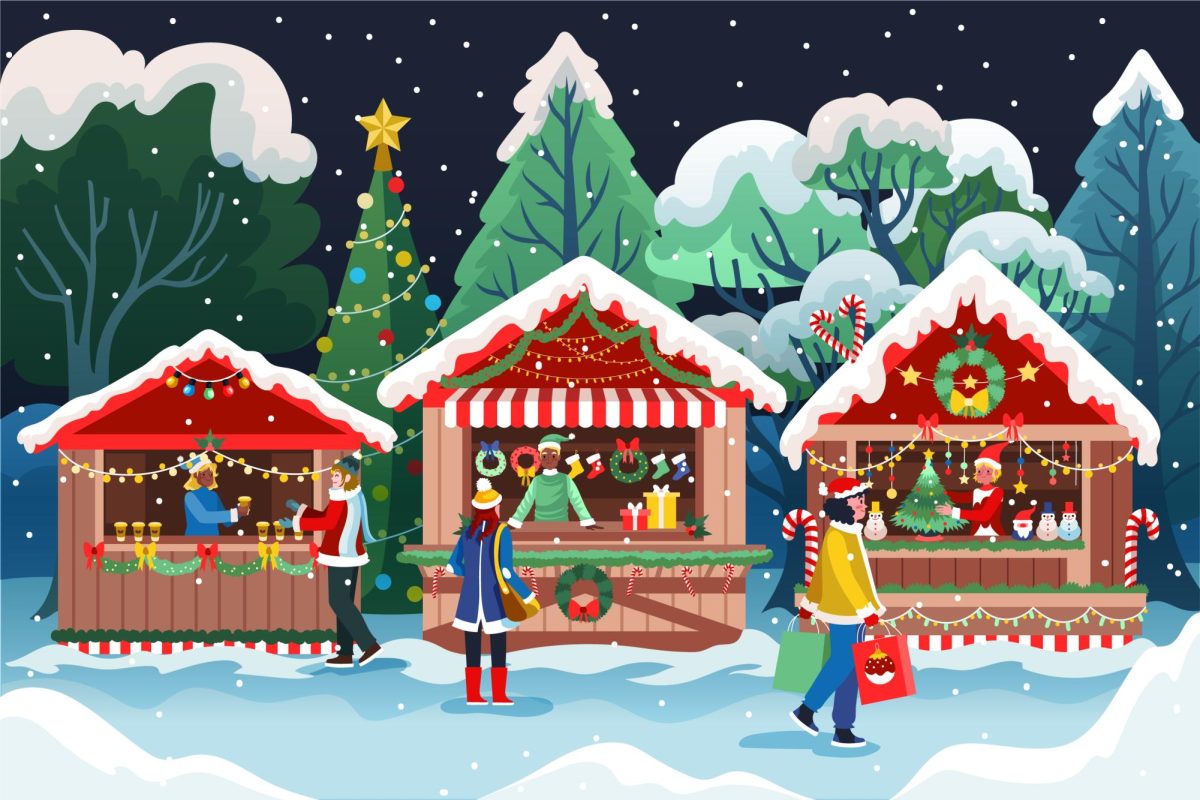Winter comes, and with it, towns around the world begin to dress themselves up in holiday lights, holiday music, and an atmosphere that generally warms the air that’s actually cold outside. Probably the most iconic way this has been celebrated in Europe is through a very traditional Christmas market.
A jolly market; bright lights, comfort food, crafty gifts, and that unmistakable feeling of being “back in time”.
While a few large towns in America have started making their own, it’s really time for the country as a whole to take over with these sorts of festivals.
One of the great things about Christmas markets is how they promote local traders and artisans. The markets would prove an excellent opportunity for small businesses to reach new customers during a particularly high-spending season. Rather than bursting into big-box stores or relying on online shopping, Americans could find unique, handmade gifts while supporting their locals.
These markets likely are a shot in the arm for small businesses when times are not found too easy.
Walking through a holiday market allows something very unique because neighbors, friends, and family can make it an experience of encounter-sharing a cup of “Glühwein” or listening to Christmas songs together. It is a moment, in this sense, for communities to come closer together, offering space, comfortable and accessible for everybody to celebrate.
Christmas markets afford an opportunity to reconnect with neighbors creating, in cities across this nation, a sense of community most could be better off having. For the most part, consumerism defines the U.S. holiday season, but really, there’s a growing interest in making it something much more meaningful: experiences.
Maybe Christmas markets could just offer that, preserving some of those old-world traditions of handmade decorations, caroling, and warm treats for the holiday season. The surroundings just bring people back to what should be the real spirit of holidays: connection, giving, and warmth.
In particular, the family and children’s markets could give a timelessness to holiday magic, moving successive generations beyond gift-wrapped boxes. European Christmas markets represent regional specialties, traditional foods, and crafts of an area.
Similarly, the United States is a highly diverse country that can easily celebrate that richness in cultural diversity. This can include food and crafts from across cultures that Christmas markets here can offer to create a holiday experience representative of the nation’s melting-pot heritage.
Where German-style sausages and “Glühwein” filled the air, gingerbread, chocolate fruits, roasted almonds, and any other culturally important holiday foods took their places of honor in bringing people together in joy and in knowledge of other people’s holidays.
Large Christmas markets would go on to employ a large number of people in food stalls, gift stands, and numerous other amusements. Such a larger Christmas market would perhaps be in a position to extend seasonal employment to a large number of people from a variety of Industrial craftsmen, salespeople, event organization staff, and performers alike.
During months when temporary employment can be important, this would be somewhat of a real benefit to people who want to strengthen their incomes.
Now, with two-day delivery being the norm, it’s far too easy to get sucked into that rhythm of mindless last-minute holiday shopping. Instead, Christmas markets tend to be less a place of purchase than a place of experience. Most people seek out an experience of the senses that invites them to linger and savor the season.
Simply put, holiday shopping at Christmas markets brings in cheer and togetherness, not stress and rush. That sums it up; Christmas markets offer ways for people to reconnect to the holidays in more authentic and meaningful ways than ever before, shopping, celebrating, and connecting with their communities. By embracing Christmas markets across the United States, no doubt we will be able to recapture some of that magic, community, and cheer it is all supposed to be about.

